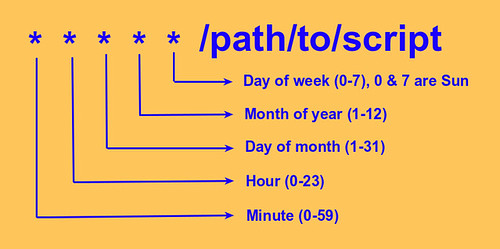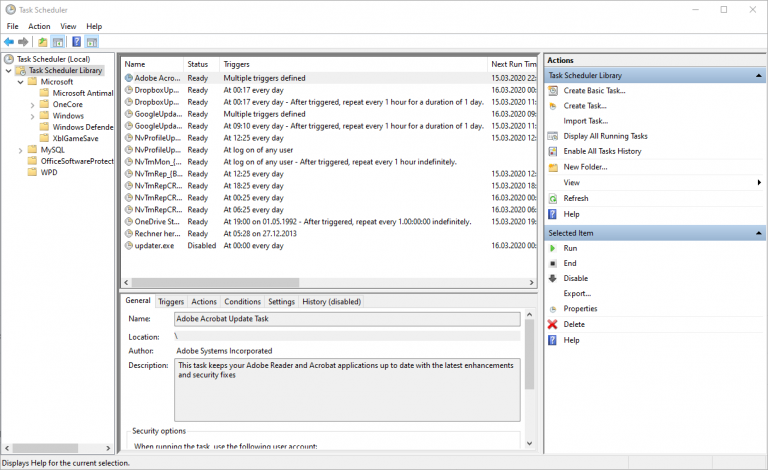
#Gpodder in cron job how to
“ 0 0 1 * *“įor example, this is how to backup your system every day: /path/to/backup/script.shĪt this point, you have all you need to create and manage system tasks using Cron. Cron has specific strings you can use to create commands quicker: Strings are among the developer’s favorite things because they help to save time by eliminating repetitive writing. Run Linux command at 04:05 every Sunday: 5 4 * * sun /path/to/linuxcommand Cron Optionsĭelete Cron job for a specific user. Run at 23 minutes after midnight, 2am and 4am, everyday: 23 0-23/2 * * * /path/to/ Run /scripts/phpscript.php at 10 pm during the week: 0 22 * * 1-5 /scripts/phpscript.php Run script.sh at 4:30 pm on the second of every month: 30 16 2 * * /path/to/script.sh Run /root/backup.sh at 3 am every day: 0 3 * * * /root/backup.sh

The first step to running cron commands is installing your crontab with the command: # crontab -e Now that you know Cron’s syntax and operators, let’s see some cron examples. The comma (,): specifies a list of values.Asterisk (*): specifies all possible values for a field.Cron uses 3 operator symbols which allow you to specify multiple values in a field: /path/to/command – The name of the script or command you want to schedule.USERNAME: replace this with your username.Starting from Monday, 0 or 7 represents Sunday Just as it is with any language, working with cron is a lot easier when you understand its syntax and there are 2 formats you should know: A B C D E USERNAME /path/to/command arg1 arg2 And what’s even cooler is that you don’t need to restart cron after creating new files or editing existing ones.

The command for creating and editing cron jobs is the same and simple. The crontab is the method you use to create, edit, install, uninstall, and list cron jobs. How then are you supposed to create and edit cron jobs? With crontab commands. The cron files are not supposed to be edited directly and each user has a unique crontab. Given that description, you can imagine how system admins use it to automate backup tasks, directory cleaning, notifications, etc.Ĭron jobs run in the background and constantly check the /etc/crontab file, and the /etc/cron.*/ and /var/spool/cron/ directories. Cron is one of Linux’s most useful tools and a developer favorite because it allows you to run automated commands at specific periods, dates, and intervals using both general-purpose and task-specific scripts.


 0 kommentar(er)
0 kommentar(er)
